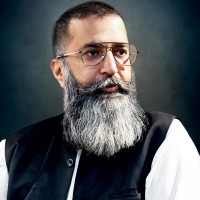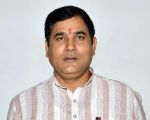Bhopal : Madhya Pradesh is at the forefront of child protection, and Bhuwan Ribhu, founder of Just Rights for Children, said the state holds immense potential to lead the national fight against crimes targeting children.
With 40 percent of its 73 million people being children, the state faces immense responsibility, and it has acted decisively. The government and the civil society have worked together to fight child marriage, trafficking and sexual violence with utmost urgency.
Between April 2023 and August 2025, partners of Just Rights for Children, a network of 250 NGOs, assisted law enforcement agencies to prevent or stop 36,838 child marriages, rescue of 4,777 trafficked children, and support more than 1,200 survivors of sexual abuse across 41 districts.
In districts such as Rajgarh, Sheopur and Chhatarpur, where prevalence of child marriage nears 40 percent, these interventions have protected thousands of children from harm and secured their future. This collaborative model, where civil society organisations work hand-in-hand with police, lawyers, Child Welfare Committees, and communities, has strengthened the state’s ability to protect children.
Madhya Pradesh was the first state in India to introduce the death penalty for the rape of girls. Ribhu has now urged the state government to extend the same resolve to child marriage. He argued that the Prohibition of Child Marriage Act (PCMA) is a secular law intended to protect all children, irrespective of religion, and must prevail over personal laws.
In the wake of recent High Court rulings that allowed personal codes to override the PCMA, Ribhu said Madhya Pradesh must lead the way in making the law universally binding and non-negotiable.
Addressing a press conference in Bhopal on Monday, Bhuwan Ribhu said, “The Prohibition of Child Marriage Act is above every personal law, every custom, every code. Madhya Pradesh must enforce this principle and prove that the law protects every child, without compromise.”
The first Indian lawyer to be conferred with “Medal of Honour” by the World Jurist Association, he is also the Chairman of Jurists for Children Worldwide (JCW), an initiative of the World Jurist Association in collaboration with Just Rights for Children. JCW brings together lawyers, judges and jurists from across the world to strengthen child protection through legal reform and enforcement.
Bhuwan Ribhu, author of the bestseller “Children Have Children: Tipping Point to End Child Marriage”, said that real prevention and protection are possible only when the law serves as a strong deterrent.
He added, “In just two years from April 2023 to July 2025, Just Rights for Children, working with law enforcement agencies, has proven that when the law is enforced with urgency and purpose, children are truly protected. By preventing over 3,74,000 child marriages, rescuing more than 1,00,000 children from trafficking, supporting over 34,000 survivors of sexual abuse with mental health care, and ensuring justice through more than 63,000 prosecutions, India has shown that it can build a nation where no crime against children goes unpunished. Even in the digital space, with over 1,000 cases of online child sexual exploitation and abuse registered, we have sent a clear message that the rule of law protects every child, everywhere.”
While Madhya Pradesh’s average child marriage prevalence stands at 23.1 percent, close to the national average of 23.3 percent, it is alarmingly higher in several districts: 46 percent in Rajgarh, 39.5 percent in Sheopur, 39.2 percent in Chhatarpur, 36.5 percent in Jhabua, and 35.6 percent in Agar Malwa. Without strong enforcement, child marriage will keep pulling girls out of schools and into recurring cycles of abuse and poverty.
In Madhya Pradesh, the JRC network has supported and worked with 17 NGOs in 41 districts in the last two years. The network uses the unique combination of awareness at scale and legal intervention tools to prevent child marriages, child trafficking, child sexual abuse and child labour. Just Rights for Children is also supporting the “Child Marriage Free India” campaign which aims to end child marriage from the country by 2030.
Under the Prohibition of Child Marriage Act (PCMA), 2006, a child is defined as a girl under 18 years and a boy under 21. The law not only bans child marriage but also penalises anyone who conducts, enables, or participates in it—including guests, caterers, priests, and others involved in such ceremonies.





